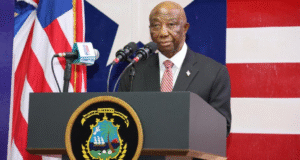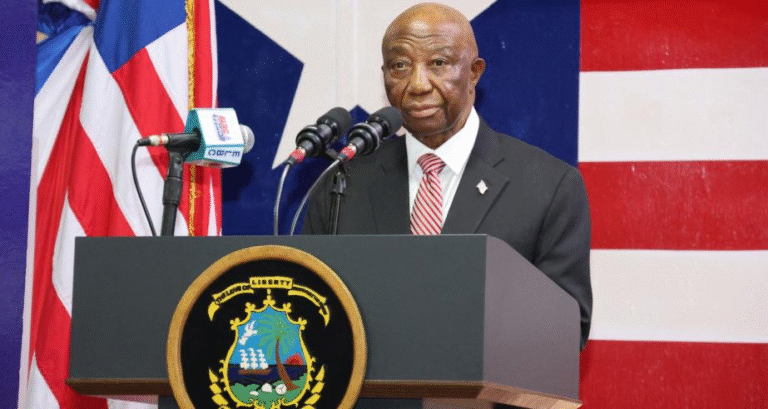Malawi the “Warm Heart of Africa,” is a nation grappling with persistent economic
challenges that have profoundly impacted its people. Decades of structural
imbalances, vulnerability to climate shocks, and governance issues have created a
complex web of poverty, food insecurity, and limited access to basic services. While the road ahead is undoubtedly steep, glimmers of hope persist, driven by recent policy shifts, strategic investments, and the inherent resilience of the Malawian populace.
At the core of Malawi’s economic woes lies its heavy reliance on agriculture,
particularly rain-fed maize production. This makes the country highly susceptible
to climatic variations, including droughts and floods, which frequently decimate
harvests and trigger food crises. Compounding this is a lack of diversification in
exports, with tobacco historically dominating the foreign exchange earnings,
leaving the economy vulnerable to global price fluctuations. High inflation, a
depreciating currency, and significant public debt have further exacerbated the
situation, making it challenging for the government to invest adequately in critical
sectors like healthcare and education.
The ordinary Malawian bears the brunt of these economic hardships. A large
percentage of the population lives below the poverty line, struggling to afford
nutritious food, access clean water, and secure decent housing. Unemployment,
particularly among the youth, is a significant concern, leading to a sense of
disillusionment and a brain drain as skilled individuals seek opportunities abroad.
The public health system is often overwhelmed, and educational facilities are
under-resourced, limiting human capital development.
Despite this grim picture, recent developments offer a cautious optimism. The
Chakwera administration signaled a commitment to fiscal discipline and
macroeconomic stability. Efforts are underway to rationalize public expenditure,
broaden the tax base, and improve debt management. The International Monetary
Fund (IMF) has re-engaged with Malawi, providing financial support and technical
assistance, which could unlock further concessional financing from other
development partners. This renewed engagement is crucial for restoring investor
confidence and stabilizing the economy.
Furthermore, there is a growing recognition of the need for economic
diversification. President Chakwera is promoting investment in other sectors such
as mining, tourism, and manufacturing, aiming to reduce dependence on
agriculture and create more resilient economic growth. Initiatives to improve
agricultural productivity through irrigation schemes, climate-smart farming
techniques, and value addition are also gaining traction. Small and medium-sized
enterprises (SMEs) are increasingly seen as engines of growth, and efforts are
being made to improve their access to finance and markets.
Crucially, the people of Malawi themselves are a source of immense hope. Known
for their warmth and perseverance, Malawians have consistently demonstrated
their ability to adapt and innovate in the face of adversity. Community-led
initiatives for food security, local entrepreneurship, and civil society advocacy for
improved governance are vital forces driving positive change from the ground up.
The increasing youth population, if adequately educated and empowered,
represents a demographic dividend that could fuel future economic dynamism.
However, sustained progress requires addressing fundamental structural issues.
Strengthening institutions, combating corruption, and ensuring transparent
governance are paramount to building a predictable and attractive investment
climate. Investing heavily in human capital development – particularly in
education and healthcare – is essential for equipping the workforce with the skills
needed for a diversified economy. Improving infrastructure, especially energy and
transport networks, is also critical for facilitating trade and business growth.
Malawi’s journey towards economic prosperity and improved livelihoods for its
people will be a marathon, not a sprint. It demands unwavering commitment from
its leaders, sustained support from international partners, and the continued
resilience and ingenuity of its citizens. While deep-seated challenges remain, the
recent policy reforms, diversification efforts, and the inherent strength of its
people provide a tangible basis for hope that Malawi can indeed build a more
prosperous and equitable future.
Malawi, the “Warm Heart of Africa,” is a nation grappling with persistent economic challenges that have profoundly impacted its people. Decades of structural imbalances, vulnerability to climate shocks, and governance issues have created a complex web of poverty, food insecurity, and limited access to basic services. While the road ahead is undoubtedly steep, glimmers of hope persist, driven by recent policy shifts, strategic investments, and the inherent resilience of the Malawian populace.
Malawi heavily relies on agriculture, particularly rain-fed maize production, making it highly susceptible to climatic variations such as droughts and floods. Frequent disasters decimate harvests and trigger food crises. Tobacco has historically dominated foreign exchange earnings, leaving the economy vulnerable to global price fluctuations. High inflation, a depreciating currency, and significant public debt further exacerbate economic difficulties, limiting government investments in critical sectors like healthcare and education.
A large percentage of the population lives below the poverty line, struggling to afford basic needs such as nutritious food, clean water, and decent housing. Youth unemployment is a significant concern, leading to disillusionment and a brain drain as skilled individuals seek opportunities abroad. Public health systems are often overwhelmed, and educational facilities are under-resourced, limiting human capital development.
The Chakwera administration has signaled a commitment to fiscal discipline and macroeconomic stability. Efforts are underway to rationalize public expenditure, broaden the tax base, and improve debt management. The International Monetary Fund (IMF) has re-engaged with Malawi, offering financial support and technical assistance, which could unlock further concessional financing from other development partners. This renewed engagement is crucial for restoring investor confidence and stabilizing the economy.
There is growing recognition of the need to diversify the economy. President Chakwera is promoting investments in sectors such as mining, tourism, and manufacturing to reduce reliance on agriculture and create more resilient economic growth. Initiatives to improve agricultural productivity through irrigation schemes, climate-smart farming techniques, and value addition are also gaining traction. Small and medium-sized enterprises (SMEs) are increasingly viewed as engines of growth, with efforts being made to improve their access to finance and markets.
The people of Malawi themselves are a source of immense hope. Known for their warmth and perseverance, Malawians have consistently demonstrated adaptability and innovation in the face of adversity. Community-led initiatives for food security, local entrepreneurship, and civil society advocacy for improved governance are vital forces driving positive change. The increasing youth population, if adequately educated and empowered, represents a demographic dividend that could fuel future economic dynamism.
To achieve sustained progress, Malawi must address fundamental structural issues, including combating corruption and ensuring transparent governance to create a predictable and attractive investment climate. Significant investment in education and healthcare is necessary to equip the workforce with skills for a diversified economy. Enhancing energy and transport networks is critical for facilitating trade and business growth.
Malawi’s journey toward economic prosperity and improved livelihoods will be a marathon, not a sprint. It demands unwavering commitment from its leaders, sustained support from international partners, and the continued resilience and ingenuity of its citizens. While deep-seated challenges remain, recent policy reforms, diversification efforts, and the inherent strength of its people provide tangible hope for building a more prosperous and equitable future.






